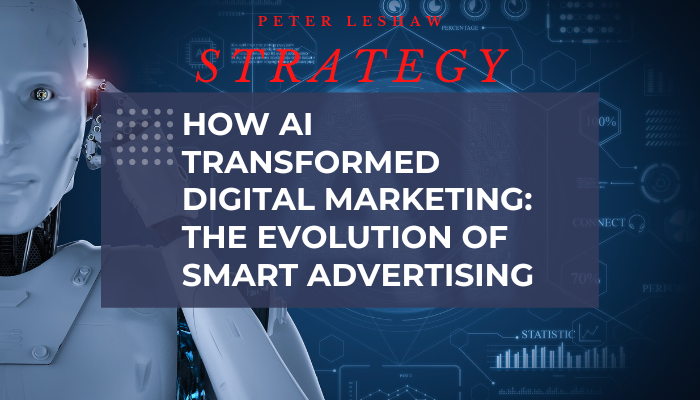
In the digital age, technology continues to evolve, and businesses must adapt to stay ahead of the competition. One technology that has revolutionized digital marketing is artificial intelligence (AI). From chatbots to predictive analytics, AI is transforming the way companies approach advertising and customer engagement. In this article, we explore the ways in which AI has transformed digital marketing, and how businesses can take advantage of this technology to stay ahead of the curve.
AI in Digital Marketing: An Overview
AI refers to the ability of machines to learn from data and perform tasks that would typically require human intelligence. In digital marketing, AI can be used to automate tasks, analyze data, and personalize customer experiences. The use of AI in digital marketing has led to more efficient and effective advertising campaigns, as well as more personalized and engaging customer experiences.
Chatbots: Enhancing Customer Engagement
Chatbots are AI-powered tools that can interact with customers in real-time. Chatbots can provide customers with answers to frequently asked questions, offer personalized recommendations, and even complete transactions. Chatbots can improve customer engagement by providing a more efficient and personalized experience, increasing customer satisfaction and reducing response time.
Personalized Advertising: Targeting the Right Audience
Personalized advertising involves targeting specific audiences based on demographics, interests, and behaviors. By using AI-powered algorithms to analyze customer data, businesses can create highly personalized advertising campaigns that are more likely to convert. Personalized advertising can lead to higher conversion rates, increased customer loyalty, and a more positive customer experience.
Predictive Analytics: Making Data-Driven Decisions
Predictive analytics involves using data to make informed decisions about future events. In digital marketing, predictive analytics can be used to analyze customer behavior and predict future purchases. By using predictive analytics, businesses can make data-driven decisions about which advertising campaigns to run, which products to promote, and how to optimize their marketing efforts.
Image and Video Recognition: Creating a Seamless Customer Experience
Image and video recognition technology enables businesses to recognize visual content, including logos, products, and even people. By using AI-powered image and video recognition, businesses can create a more seamless customer experience by recognizing visual content and providing customers with more relevant and personalized recommendations.
AI and SEO: Improving Search Engine Rankings
Search engine optimization (SEO) is the process of optimizing a website to rank higher in search engine results pages (SERPs). By using AI-powered algorithms to analyze data and identify trends, businesses can improve their SEO efforts and rank higher in SERPs. AI can be used to analyze customer search queries, identify popular keywords, and recommend optimizations to improve website rankings.
Challenges and Limitations of AI in Digital Marketing
While AI has transformed digital marketing, it also poses certain challenges and limitations. Data privacy concerns, the need for human oversight, and the potential for algorithmic bias are all potential issues that businesses must be aware of when using AI in digital marketing. Businesses must ensure that customer data is protected, that AI tools are used ethically and transparently, and that human oversight is present to ensure that AI tools are making decisions in line with business goals and values. Algorithmic bias can also be a concern, as AI tools may replicate existing biases in the data they are trained on.
The Future of AI in Digital Marketing
The future of AI in digital marketing is exciting, with emerging trends set to transform the industry. Voice search, hyper-personalization, and augmented reality are just a few of the trends that are expected to revolutionize digital marketing in the coming years. As AI technology continues to evolve, businesses that are able to leverage its power will be best positioned to succeed in the competitive world of digital marketing.
In conclusion, AI has transformed digital marketing by enabling businesses to provide a more personalized and engaging customer experience. The use of AI-powered tools like chatbots, personalized advertising, predictive analytics, image and video recognition, and AI in SEO has led to more efficient and effective advertising campaigns, as well as more personalized and engaging customer experiences. While there are challenges and limitations associated with the use of AI in digital marketing, the future of the industry looks bright, with emerging trends set to revolutionize the way businesses reach and engage with their target audiences. As AI technology continues to evolve, businesses that are able to leverage its power will be best positioned to succeed in the competitive world of digital marketing.

